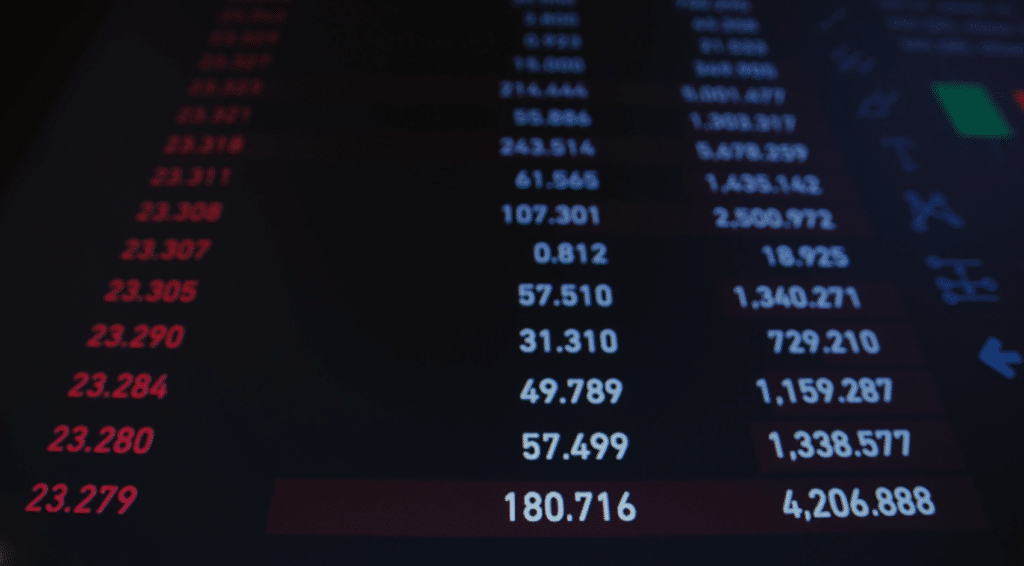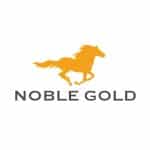Digital Gold

In today's tech-driven world, digital gold offers a unique investment opportunity. You're about to dive into what it is, how it compares to traditional, physical gold, and what are the advantages and disadvantages.
Digital gold can range from Gold ETFs, Mutual Funds, Futures Contracts, and Sovereign Gold Bonds (SGBs). To truly understand digital gold and how these instruments can work in one’s investment portfolio, it is important to understand:
- What Is Digital Gold?
- Types of Digital Gold?
- What is The Best Gold to Buy? Solid Gold vs Digital Gold
- Advantages and Disadvantages of Investing in Digital Gold

What Is Digital Gold?
You might be wondering, what's digital gold? Well, it's a modern, innovative approach to investing in gold that leverages the advantages of the digital era. It's not a physical asset you can hold in your hand, but rather a digital representation of physical gold stored in secured vaults.
As an investor, you purchase this gold in a digital format. It's like owning a gold certificate, but instead of a paper document, you receive digital proof of ownership. This proof is reflected in your digital gold account, ensuring its legitimacy and your rights as an investor.
Digital gold isn't bought in bulk; instead, you can buy it in small amounts over a certain period. This flexibility makes it more accessible and convenient for a wider range of investors. You can invest at your own pace, from anywhere, anytime, and this convenience is one of the biggest draws.
But there's more to digital gold than just convenience. It's also about diversifying your investment portfolio. By investing in digital gold, you're not putting all your eggs in one basket. Instead, you're spreading your wealth across different investment avenues, thereby reducing your risk and increasing your chances of steady returns.
To sum it up, digital gold is a tech-savvy, convenient, flexible, and risk-mitigating investment option. It's the future of gold investment, providing a bridge between traditional commodities and the digital world. It's an investment option that offers a golden opportunity to build wealth while adapting to the digital age.

Types of Digital Gold?
As we shift our focus to our Featured Partner, we're going to explore their role in the digital gold investment landscape.
They offer a range of opportunities including Gold Exchange Traded Funds (ETFs), Gold Mutual Funds, Gold Futures Contracts, and Sovereign Gold Bonds (SGBs).
Let's take a closer look at these mechanisms and how they contribute to the dynamics of digital gold investments.
Gold Exchange Traded Funds (ETFs)
Investing in Gold Exchange Traded Funds (ETFs) offers you an easy way to own gold digitally without the hassle of storing physical gold. As a tech-savvy investor, you can trade these ETFs on stock exchanges just like common stocks. Popular choices in India include Axis Gold ETF, Birla Sun Life ETF, and HDFC Gold Exchange Traded Fund.
You're required to purchase at least one unit, equivalent to one gram of gold, to start trading. Starting a systematic investment plan (SIP) in ETFs is a strategic move, allowing for the gradual accumulation of units. Once you've amassed a substantial number, conversion to physical gold is possible.
In essence, gold ETFs provide a streamlined, digital avenue to gold ownership.
Gold Mutual Funds
While it's true that owning gold can come with a few extra fees, gold mutual funds offer you a different avenue for investment in this precious metal. These funds let you purchase shares tied to international gold mining companies or other gold-exposed assets like ETFs. As these assets fluctuate in value, they simultaneously track the price of gold.
Names like Invesco India Gold Fund and SBI Gold are among the favorites in India's gold mutual fund market. However, it's crucial to remember that these funds come with an expense ratio. This is a charge for managing the fund, in addition to fees for buying the underlying assets.
Gold Futures Contracts
You might be intrigued to learn about gold futures contracts, a high-risk but potentially rewarding way to invest in the precious metal. As a standardized contract, they trade on organized exchanges like MCX and NCDEX in India. The mechanics may seem complex, but here's a simplified breakdown:
* You commit to buying or selling a specific amount of gold at a future date.
* The price is predetermined, regardless of market fluctuations.
* You can sell, buy, or hold the contract until expiry.
These contracts fall into the high-risk category, making them suitable for mature investors. Remember, while the potential profits are high, so too are the losses. As with any investment, it's crucial to do your research and understand the risks involved.
Sovereign Gold Bonds (SGBs)
Consider buying Sovereign Gold Bonds (SGBs), a high-return investment option offered by the Government of India through the Reserve Bank. SGBs are a digital form of gold investment, launched in 2015, and yet to gain widespread popularity. However, don't let that deter you.
These bonds provide a dual advantage - price appreciation of gold and a fixed annual yield of 2.5%. This means you're not only investing in gold's future price, but also earning a steady income.
With SGBs, you're essentially purchasing gold in grams, without the need for physical storage. It's a smart, tech-savvy way to invest in gold, combining the stability of traditional gold investment with the convenience of digital transactions.
Choose SGBs for a secure, high-yielding investment.
What is The Best Gold to Buy? Solid Gold vs Digital Gold
You're likely familiar with solid gold's status as a tried-and-true investment, but have you considered the potential of digital gold? As cryptocurrencies evolve, they're becoming a fresh, tech-forward option for diversifying your portfolio.
Let's analyze the distinctions and potential benefits tied to these two different yet interconnected forms of wealth,
What Are the Advantages to Buying Physical Gold?
Let's compare solid gold to its digital counterpart.
You're aware that solid gold has been a trusted store of value for millennia, but how does digital gold stack up?
We'll explore the advantages and disadvantages of each, providing you with a tech-focused analysis that cuts through the jargon.
In terms of solid gold, you're investing in a physical asset that has withstood the test of time. This brings several advantages:
- Easy to trade: Gold's universal value makes transactions simple.
- Inheritance: Gold can be passed onto future generations.
- Time-tested: Gold's value has proven resilient over centuries.
With solid gold, you're making a timeless, tangible investment. To paraphrase a popular phrase in the crypto currency world ‘You don’t hold it, you don’t own it.’
Despite the benefits of investing in physical gold, there are drawbacks to consider. One drawback is security concerns. Since gold is a valuable and easily transportable asset, there is a risk of theft. That is why working with a trusted gold custodian for the security of your gold and silver investment is so important.
Our list of the best gold IRA and precious metals investment companies have a long and established relationship with their custodians and provide stress-tested security at a minimal cost compared to the appreciation of your investment.
Another consideration is that investing in gold is a passive investment and is meant for long-term holding. This means that you can only realize returns upon sale. It's important to weigh these factors when deciding whether to invest in physical gold.
What Are the Advantages to Buying Physical Gold?
You're about to explore 'Digital Gold', the modern counterpart to traditional solid gold. This analysis will shed light on key advantages and disadvantages, putting into perspective their implications in today's tech-driven economy.
Grab this opportunity to understand how digital gold stands toe-to-toe with its physical counterpart.
With digital gold, you're gaining several advantages over solid gold. One advantage is easier trading. There is no need for physical transfer, and transactions can be completed quickly.
Another advantage is the possibility of converting digital gold to physical gold. Once you've accumulated a certain number of units, you can convert it to tangible gold.
Digital gold also offers a tech-savvy investment option. It is modern and future-proof, making it perfect for the digital age.
However, while there are a number of advantages to investing in digital gold, it's important to also consider a few potential disadvantages.
Currently, no government regulations exist, leaving you vulnerable.
Transaction fees for the purchase, sale, and storage of gold units can add up.
Furthermore, you're required to have account activity every six months, which may not suit passive investors.
To better explain the differences, advantages, and disadvantages of owning digital gold as opposed to the physical, tangible asset, watch the video below:
Advantages and Disadvantages of Investing in Digital Gold
While you might be considering investing in digital gold, it's essential to understand both the potential benefits and drawbacks that come with this type of investment.
On the plus side, digital gold has several advantages over traditional forms:
- **Liquidity:** Much like Gold ETFs, digital gold offers excellent liquidity for short-term and medium-term investors.
- **No physical storage:** Unlike physical gold, there's no need for secure storage or worries about theft.
- **Accessibility:** Digital gold can be bought and sold 24/7, providing access to gold investments at your fingertips.
However, investing in digital gold also has its downsides:
- **Inability to convert to physical gold:** Similar to Gold ETFs, mutual funds, and futures contracts, digital gold can't be converted into physical gold.
- **Risk of hacking:** As a digital asset, there's the potential threat of hacking, posing a risk to your investment.
- **Dependence on internet:** Access to your digital gold investment is reliant on Internet connectivity, which may not always be reliable.
Like Sovereign Gold Bonds (SGBs), digital gold offers low-risk and low impact of market fluctuations, but it also suffers from the same low liquidity in the secondary market. Therefore, it's important to carefully consider your investment goals and risk tolerance before diving into digital gold.
While it offers a modern, tech-savvy alternative to traditional gold investments, it's not without its challenges and risks. By understanding these pros and cons, you'll be better equipped to make an informed decision about whether digital gold is the right investment for you.
Finding the Best Gold IRA Company for Your Needs
When weighing the advantages, and disadvantages of counterparty risk involved with digital gold products, considering physical gold options presents many advantages. Verifiable proof that the physical gold exists and the elimination of counterparty risk are just a couple key reasons. This is where a gold IRA yields a great advantage.
Gold IRA companies with a long-established reputation can eliminate this guesswork. Also, a dedicated gold IRA company can provide competitive prices, transparency, reliable customer service, and security of your precious metals.
Depending on whether you are a high-net investor looking for the most competitive prices or require a lower investment minimum and affordable entry to the gold market, we have researched and reviewed our best 4 gold IRA and precious metal investment companies that meet those individual needs. Whether you prefer a gold IRA or owning the physical gold in your place of residence.
Tap the banner below to visit Augusta Precious Metals to receive their gold IRA checklist:
What Makes Investing in a Gold IRA Attractive?
You might be wondering: what's so attractive about investing in a gold IRA?
It's the unique combination of convenience, security, and affordability that makes it a stand-out option for novice and seasoned investors alike.
Let's unpack these advantages to understand why a gold IRA is a game-changer in the investment world.
The features include:
- Having authorized dealers
- An ensured vaulting location for gold
- A certification of purity and stamp of trust
- Transparent pricing
- A fair buy-sell price
Investing in a gold IRA through an established company offers attractive features such as secured storage, easy online transactions, and customer support.
Vaulting location of gold
While considering physical gold investments, it's crucial to understand that your gold is safely vaulted domestically or in an overseas location, adding an extra layer of security to your investment.
Service providers manage this for you, purchasing equivalent gold overseas in dollars as you pay in rupees.
This approach not only ensures safety but also enhances the global liquidity of your assets.
Certification of Purity and Stamp of Trust
In addition to the security of having your gold vaulted overseas, another appealing feature of investing in physical gold is the certification of purity and stamp of trust.
The certification of purity and stamp of trust involves:
- The seller ideally has an independent SEBI-registered trustee
- Regular audits and confirmation of gold holdings each month
- Assurance that your investment is accurately represented and secure.
This verification process adds transparency and credibility to your physical gold investment.
Price Transparency
Consider the pricing, since it's one of the attractive features that makes investing in physical gold appealing—note that the cost varies among providers based on the carat purity of 995, 999, or 9999. Also, what is permitted in a gold IRA will have a different standard than plain outright ownership.
An astute investor could potentially leverage these variations, selecting the most cost-effective option that aligns with their investment strategy.
Conclusion
So, you're considering digital gold, huh? It's not tangible like physical gold, but it's convenient and saves you the issue of securing it. Making the decision between owning digital gold vs. physical will depend on your long-term investment strategy and goals.
Obtain a gold IRA guide and talk to a broker




If you have 100k in savings to protect, attend a gold investment educational webinar hosted by Augusta Precious Metals. Tap the button below:
Gold IRA FAQs

Adam ONeill
Author, lifelong investor, and creator of PreciousMetalsInvestmentPortfolio.com

